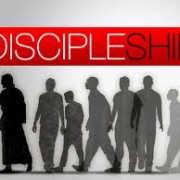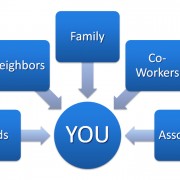“…You shall be Witnesses to Me…”[1] – Jesus
“If you are a Calvary Chapel pastor or in teaching leadership, chances are you are concerned about the death of biblical truth in our culture and within our churches…As a pastor or teacher, you have the privilege of expositing and expounding God’s truth to your community.”[2] – Chuck Smith
Speaking of the biblical gospel in a letter written to a group of believers living in Rome during the first century, the Apostle Paul said it is, “The power of God for salvation to everyone who believes…”[3] That is a brilliant statement of truth! The word gospel literally means good news. The message of the biblical gospel is that even though human beings are spiritual criminals who are evil from the core of their being, God still loves them. It tells us that though all humans have broken God’s law and heart at the level of behavior, desire, and imagination, God has chosen to freely provide a way for us to be totally forgiven for our crimes. He has made a way for us to know and enjoy Him forever in personal relationship. We have a way to be viewed by God as perfect and righteous even though we know deep down we could never be those things practically speaking, from the inside out.
The Rescue Mission of Rescue Missions
How in the world could these things be possible? Only through the life, death, and resurrection Jesus Christ accomplished on our behalf some 2,000 years ago. The core of the good news of the gospel is that the infinite, totally adequate, self-sufficient, self-existent Holy God of the universe came to earth to reach out to humanity when we had no way of reaching up to Him in an effective way. This was the greatest rescue mission the world has ever seen, or will ever see. He came and was born to a young virgin girl named Mary becoming not only God, but also 100% human. He proceeded to live a life of perfect obedience to the law of God in behavior, desire, and imagination on behalf of every sinful human being. He died the death that every person who has ever lived deserves to die on a roman cross as a substitute for all people. There He took the full force of the wrath of God that we deserve to experience as spiritual criminals. He rose from the dead conquering the power of Satan, sin, demons, and death on behalf of all. He now offers us forgiveness for our sins and restoration to relationship with Him if we will simply believe in this great message of His love. This God, who came from heaven to earth to do for us all that we could never do for ourselves, is the God-man, Jesus Christ! This is His gospel.
The Fundamental Goal of Church Planting
The basic tenets of that message inherently carry the power of God to bring the person who accepts them from spiritual death to an experience of spiritual life if they are embraced with the heart. It is that message that Jesus has commanded His people to proclaim boldly and without shame or fear in all the earth. The fundamental goal of planting local churches is to establish strategic centers for the preaching, spreading, and advancement of the gospel in the world for the glory of the gracious Christ. A church should not be planted but with the goal of functioning as an effective tool for spreading the message of Jesus in the world. If a gathering, organization, or any so-called Christian entity exists without the express purpose of spreading the powerful gospel, it is not a church. It is not representative of the church.
We need churches like the first century church in Thessalonica. Paul commended that local church as being a community of believers who were on fire for spreading the gospel they had received.
“And you became followers of us and of the Lord, having received the word in much affliction, with joy of the Holy Spirit, so that you became examples to all in Macedonia and Achaia who believe. For from you the word of the Lord has sounded forth, not only in Macedonia and Achaia, but also in every place. Your faith toward God has gone out, so that we do not need to say anything. For they themselves declare concerning us what manner of entry we had to you, and how you turned to God from idols to serve the living and true God, and to wait for His Son from heaven, whom He raised from the dead, even Jesus who delivers us from the wrath to come.”[4]
The community of believers at Thessalonica didn’t simply receive the gospel, get saved, and sit around playing church and enjoying their relationship with Jesus as they watched the rest of the world go to hell. On the contrary, they became a center for missional gospel proclamation. The gospel was sounding forth from the mouths of people who had their hearts changed by it’s power. The joy over their salvation implanted into their hearts by the Holy Spirit who now indwelled them caused an overflow of gospel preaching and gospel living that brought many more people into the kingdom.
Every church planter’s goal should be that God would establish a church through him that is like the church in Thessalonica. Their dream should be that of a group of people being saved by Jesus through gospel preaching who become so passionate about the gospel of the God who saved them that they spread it everywhere they can. This is the New Testament picture of a mature and gospel-planted church. This is the kind of church I pray for, and work toward by God’s grace.
The Command
Planting churches through gospel preaching is not merely one permissible option for church planting strategies among many. It is church planting as God has commanded it to be done.
I know by experience that there is intense pressure from within and from without for church planters to get clever with their preaching. You see some guys who have flashy churches, major resources, tons of money, and yet the weakest sermons in regard to biblical content. After a while you might start to wonder if just teaching the Bible simply isn’t enough. So you start softening a truth here, glossing over a doctrine there, and all in the name of reaching people.
Over against this kind of thinking is the teaching of the Holy Spirit in the Bible:
“And I, brethren, when I came to you did not come with excellence of speech or of wisdom declaring to you the testimony of God. For U determined not to know anything among you except Jesus Christ and Him crucified. I was with you in weakness and in fear and in much trembling. And my speech and my preaching were not with persuasive words of human wisdom, but in demonstration of the Spirit and of power, that your faith should not be in the wisdom of men but in the power of God.”[5]
Now when it comes to preaching there are generally two extremes that should be avoided at all costs. Some think that using technology, media, props, and even illustrations to effectively communicate the gospel is carnal and unfaithful. These people confuse flexibility in methods with compromising the integrity of the message. Jesus Himself was a master illustrator who used the familiar pictures and experiences in the environment and technology around Him to communicate God’s timeless truths in timely ways to His hearers.
Still others are so focused on methods and strategic communication that they sometimes fail to actually present the simple content of the gospel faithfully. The pure message of the Bible gets twisted or lost in all the wrappings. These people seem to forget that while good missionaries are culturally sensitive and utilize practical tools and technology to communicate the gospel, the methods and techniques are not what God has promised to bless with His power. The simple gospel message is what God blesses with the accompanying power of the Holy Spirit to bring people from spiritual death to life. I once heard Francis Chan ask a group of Bible teachers, “Do you want to be a good communicator, or a powerful communicator?” We would do well to ask ourselves that question.
The Choice is Ours
So, every church planter has to decide where he will fit. Will you focus on methods to the exclusion of the message like many seeker sensitive and liberal churches do today? Will you be a fundamentalist and preach the Bible but ignore the cultural communication stumbling blocks that get in the way of the people who hear you receiving the gospel? Or will you be in the missional middle and preach the simple gospel faithfully while being sensitive to the cultural hang-ups of the ears who hear you?
If you are all method in your ministry I would challenge you to get back to the real source of power which is the simple gospel. You can have nothing but the power of the Holy Spirit and the pure message of the gospel in your heart, and you will have all you need to plant a church. That is all that the first church planters had and they did well to say the least. I would encourage you to read Acts two and pray over the topics we’ve covered so far in this post right now asking God to show you if and where your heart is out of step with His on the gospel.
How to Reach Young People
Something that always concerns church planters is how they are going to reach young people for Jesus. Many leaders are convinced that kids need to be entertained and have all sorts of extra wrappings encapsulating the gospel and the teaching of the Word for them to plug into churches. I believe this is a lie from hell intended to get Bible teachers side-tracked.
I was as liberal and post-modern as they come when it came to my view of truth before Jesus saved me. I can vividly remember personally saying many of the things that pastors often quote in their sermons as depicting the epitome of the post-modern mindset. I would give people the, “what’s true for you is true for you, and what’s true for me is true for me,” line all the time. And I believed that with all my heart.
But one life-changing day the Holy Spirit shot the truth of God into my mind like a bullet. I couldn’t defend myself against it. I couldn’t force it out. He convicted me of my sin and drew me to seek God. I found myself reading the Bible at home strangely desiring to figure out it’s teachings, something I had never desired to do before. I remember that as I read I realized that what this book said was true of my heart was undeniable based on my human experience. I knew it was right when it told me I couldn’t help wanting and doing things that I knew deep down were things I shouldn’t do or want to do. I knew it was right when it told me I couldn’t make myself do or want to do things that I knew deep down I should want to do and practice. I knew my heart was captive with the chains of sin it described. This was my journey to becoming born again through reading the written Word.
After I got saved I developed an appetite for the Word like newborn babies desire milk. I could understand the Bible where I hadn’t been able to before, and I wanted to learn God’s Word. I found a Bible teaching church and began to soak up what I was hearing. And the funny thing looking back is that the church I attended was about the least cool place I’d ever been from my previous cultural perspective. The “new music” we sang were worship choruses from the 1970’s, the décor of the church looked like it was supplied by my grandmother, the pastor preached in a full suit, and the only visual images in the service were these poorly done and horridly distracting landscape scenes that would appear at random behind the lyrics on the projection screen. You know what kept an artsy former metal and punk rock musician/social activist coming to such a lame place? I knew I was getting stronger in the spirit through the unadulterated preaching of God’s Word!
Many of my friends have been saved from similar backgrounds to mine and have the same kind of stories to tell. And as I meet lots of young people who come to the church I pastor and hear them talk about why they are with us, it isn’t the cool lighting, awesome band, or the fact that I listen to the music they do that keeps them coming; it’s the often blunt, sometimes offensive, always present preaching of gospel of Jesus Christ and the Word of God!
If you’re an older church planter or pastor trying to reach a younger generation, my encouragement to you would be to stick with the thing that God has chosen to bless with His power, and preach the gospel! Teach the Bible! Sure, you can draw a crowd with all sorts of things. But the only thing that will change people, the only thing that will grip them at the core of their very being, is God’s Word.
Conclusion
The preaching of the gospel is what Jesus has chosen to build His church. Preaching the simple gospel isn’t merely an optional way to do the work of church planting, but the only way. Utilizing different methods to communicate the gospel is fine and can even be good missionary strategy, but methods must never get in the way of communicating the simple gospel message in the power of the Holy Spirit. If we want to wake the dead gospel proclamation is a non-negotiable.
Note- The above is an excerpt taken from “The Spirit-led Mission” by Kellen Criswell
[2] Smith, Chuck. Line Upon Line. Page 12.
[4] 1 Thessalonians 1:10 NKJV
[5] 1 Corinthians 2:1-5 NKJV











